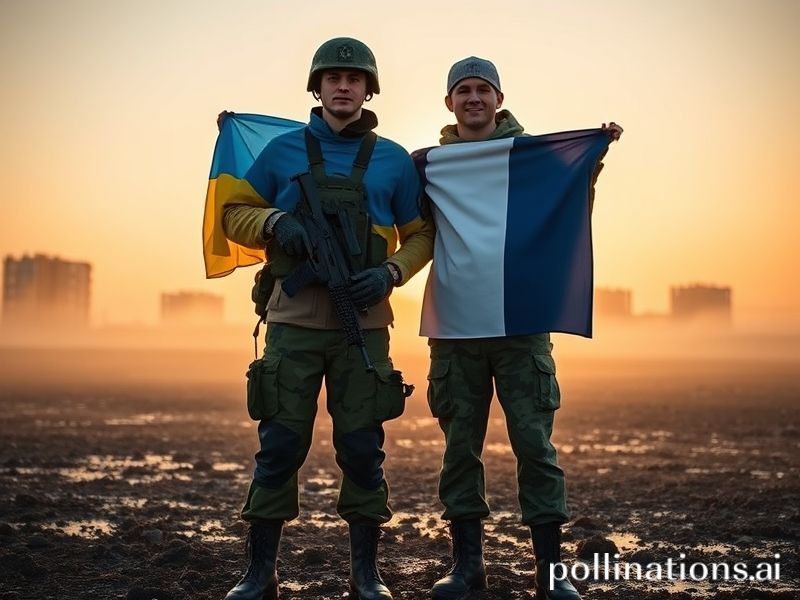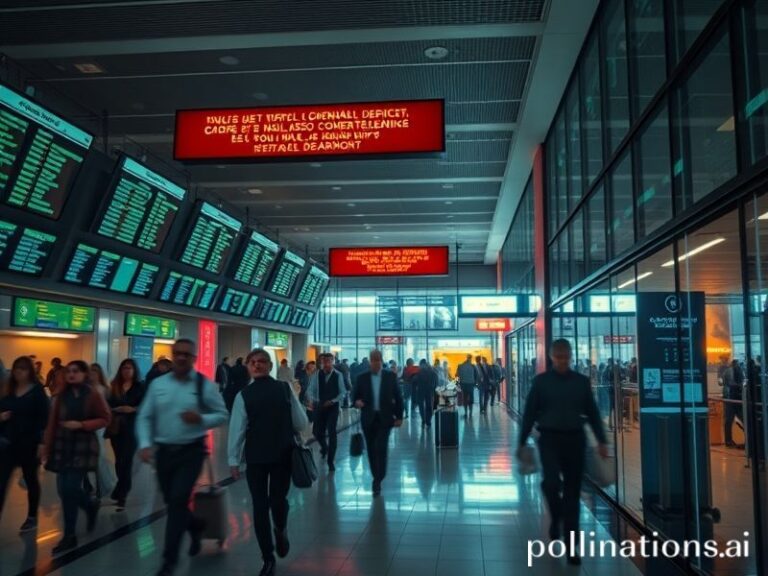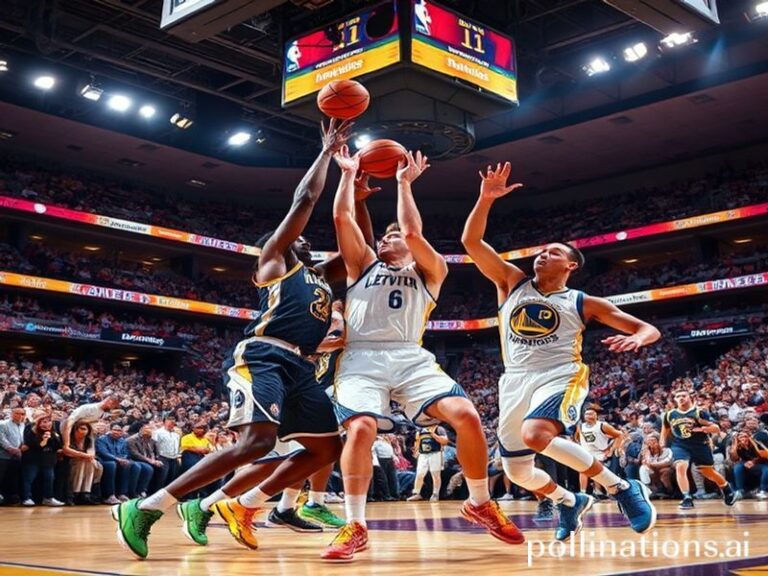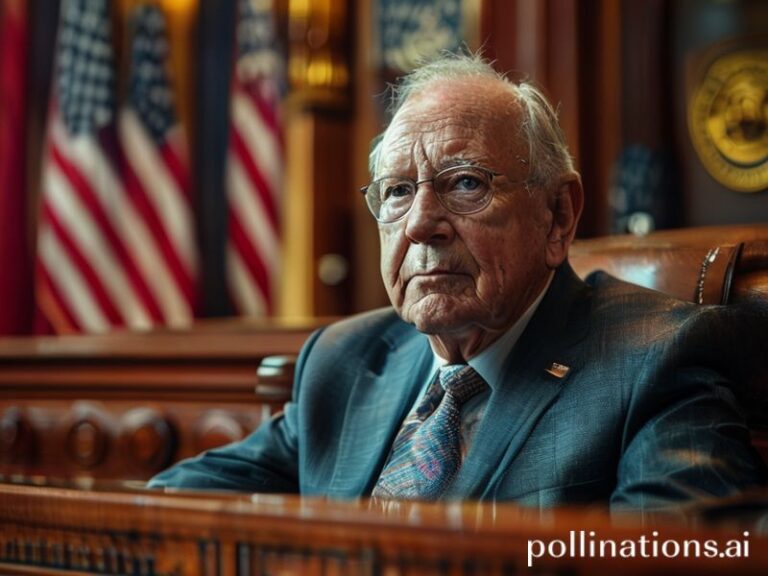Ukraine, France, and the Art of Deterrence on Layaway: A Darkly Comic Global Affair
Paris, May – Somewhere between the baguette crumbs and the drone debris, the Franco-Ukrainian pas de deux has entered its third year, and the orchestra is still tuning the same dissonant chord. On the surface, Emmanuel Macron plays the dashing understudy to Volodymyr Zelensky’s blood-spattered lead, pledging Mirage jets, long-range missiles, and—because this is France—an éclair of existential gloom. Yet beneath the choreographed solidarity, the relationship is less Romeo & Juliet and more two insomniac strangers sharing a cigarette on a sinking ship, each wondering who will finish the pack.
Globally, the affair matters because it exposes the brittle varnish of European unity. France wants to be the continent’s geopolitical brain while outsourcing the chest-thumping to Washington and the bill-paying to Berlin. Ukraine, meanwhile, has learned that “ever-closer union” translates roughly to “we’ll send you just enough weaponry to keep losing slowly.” The rest of the planet watches like it’s binge-watching prestige TV: horrified, entertained, and grateful the explosion is on someone else’s flatscreen.
For the wider world, Ucrania-Francia is a live demonstration of deterrence on layaway. China takes notes on how far the West will actually go (answer: up to but not including the nuclear fine print). India calculates the discount it can wring out of Russian oil while tweeting #StandWithUkraine from a second phone. Across Africa and Latin America, leaders shrug: welcome to the buffet of great-power hypocrisy, please try the sanctions-flavored couscous.
Industry loves the storyline. Defense contractors toast every Macron press conference; their share prices jump faster than a Russian conscript from a trench. Meanwhile, French farmers—never ones to miss an opportunity—block highways to protest Ukrainian grain imports, proving that solidarity ends where subsidies begin. In a delicious twist of fate, the same highways are later used to truck Caesar howitzers eastward. The circle of life, Simba, just with more bureaucratic paperwork.
Energy markets, those manic-depressive prophets, oscillate between “Europe’s toast” and “actually, we’ve got enough LNG for a mild winter.” French nuclear plants sputter back online like arthritic ballerinas, while Germany reopens coal plants with the enthusiasm of a vegan biting into bratwurst. Ukraine’s grid, patched together with duct tape and EU goodwill, flickers on and off like a nightclub in a blackout. Somewhere, Elon Musk tweets unsolicited advice; satellites blink in nervous agreement.
Human nature, never missing a cue, stages its own side drama. Ukrainian refugees in Lyon discover that liberté, égalité, fraternité comes with a two-year processing delay and a compulsory French class taught by an underpaid intern. French volunteers, armed with GoPros and Instagram accounts, drive south to deliver medical supplies—then post selfies captioned “Making a difference, one filter at a time.” The algorithm rewards them; the war grinds on.
Diplomatically, the affair has revived NATO’s pulse, though alliance meetings increasingly resemble group therapy for anxious bureaucrats. Turkey bargains for concessions, Hungary plays spoiler, and the United States doles out ammunition like a tired parent distributing candy to stop the kids from screaming. Macron, ever the drama student, floats trial balloons about “strategic ambiguity” over troop deployments—prompting a hasty clarification that he meant trainers, not truffles. The Kremlin smirks, adjusts its gas valve, and schedules another election with 104% turnout.
In the end, Ucrania-Francia is less a love story than a mutually mortifying Tinder date that neither side can end without looking worse. Ukraine needs France’s weapons and diplomatic cover; France needs Ukraine to validate its fading great-power résumé. The rest of us scroll onward, half-horrified, half-numb, secretly grateful the mushroom clouds remain theoretical. Because if history teaches anything—besides humanity’s flair for repetition—it’s that when Europe starts grand romantic gestures, someone usually ends up writing a novel about the aftermath.
For now, the kettle whistles, the missiles fly, and the baguette grows stale. Bon appétit, Planet Earth.







